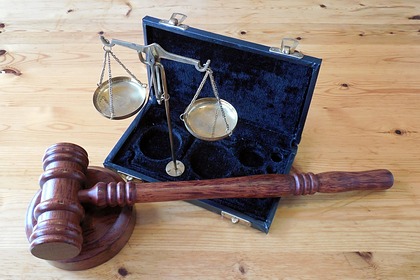Lawyer Burkovskaya: The Basmanny Court of Moscow extended the arrest of businessman Spiegel until February 20 
The Basmanny Court of Moscow on Wednesday, November 17, group of pharmaceutical companies “Biotek” Boris Shpigel, arrested in the case of bribes to the former governor of the Penza region Ivan Belozertsev. This is reported by TASS with reference to the lawyer to businessman Victoria Burkovskaya.
As the lawyer said, the court granted the request of the investigation and extended Spiegel's arrest until February 20. Burkovskaya said that the defense intends to appeal the decision, since the businessman's condition “is critically deteriorating, which is tantamount to torture.” “We will even reach the ECHR,” she promised.
In October, Spiegel's defense asked to release him on bail of two million rubles due to illness, the businessman's condition worsened and heart problems began. Then his lawyer noted that in the period from September 2 to September 29, the arrested person developed pathology of the aortic valve to the third degree, and the second mitral valve – to the second.
The businessman's health deterioration became known in early October. As members of the Public Oversight Commission (POC) clarified, Spiegel's disease is included in the list of diseases that prevent detention in an isolation ward – a businessman needs to undergo an operation to replace a heart valve.
On April 6, the ex-governor of the Penza region Belozertsev admitted that received 20 million rubles from businessman Spiegel, but stated that he did not take bribes. According to the former head of the region, the money was intended for the election campaign.
The Investigative Committee of Russia accused the former governor, as well as the head of the Biotech group of pharmaceutical companies Boris Shpigel, his wife Yevgeny Shpigel, director of OJSC Pharmacy Anton Koloskov, Gennady Markov and Fedor Fedotov, depending on the role of each of them under part 5 of article 291 of the Criminal Code of the Russian Federation (“Giving a bribe on an especially large scale”), under part 6 of article 290 of the Criminal Code of the Russian Federation (“Taking a bribe on an especially large scale”), under article 291.1 Criminal Code of the Russian Federation (“Bribery Mediation”).